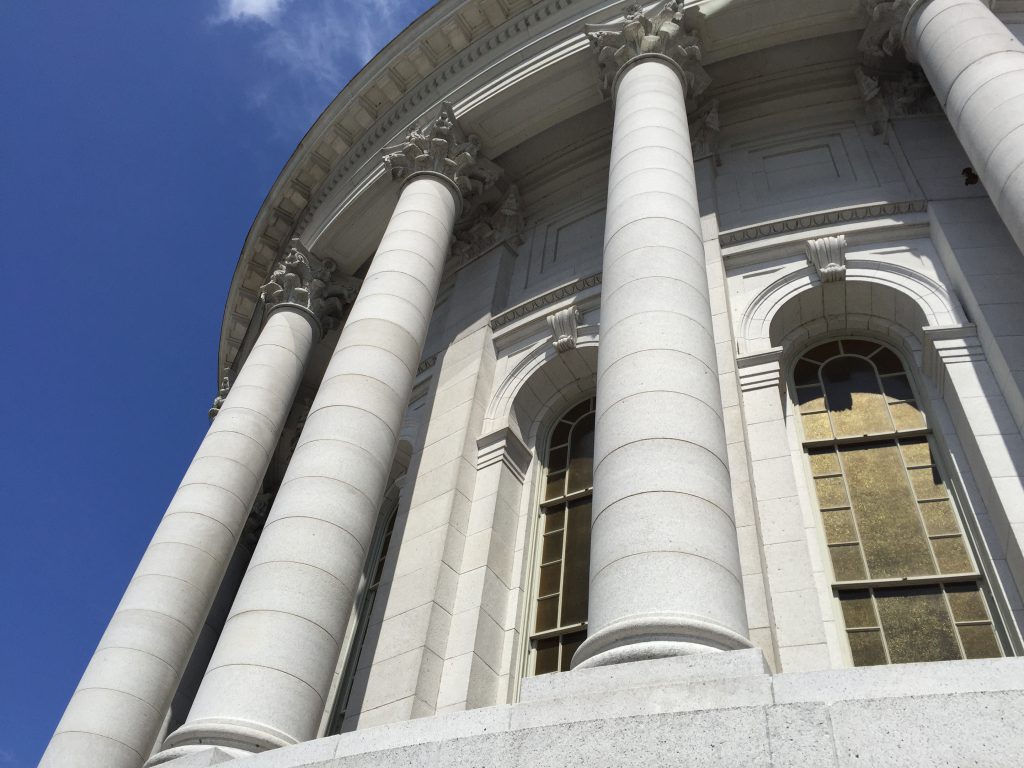Parties Target 5 State Senate Seats With No Incumbent
More competitive races will mean fierce battles and huge spending.
This year’s state Senate elections – with no incumbents in five 16 Senate seats to be filled on Nov. 5 – has both parties gearing up for what could be the most expensive legislative elections ever.
Wisconsin Democrats, who held only 11 seats in the 33-member Senate last session, are excited about the chances of winning some of those five open districts. “For the first time in over 20 years, Senate Democrats have a candidate running in every single district this November,” Senate Democratic Leader Dianne Hesselbein told reporters last week. “We are fired up and ready to go.”
The Associated Press reported that Wisconsin Democrats plan to spend $7 million in television ads in five key State Senate races.
“I would be stunned if this were not the most expensive state legislative election cycle in Wisconsin history,” Democratic Party Chair Ben Wikler told reporters.
For their part, Republican senators promised Monday to override five vetoes by Democratic Gov. Tony Evers — an attempt to draw sharp pre-election differences with Democratic candidates in November. Assembly Republicans do not have the two-thirds majority needed to override Evers vetoes, however.
Republican senators Howard Marklein and Joan Ballweg said the vetoes that will be overridden include how Republicans want to spend $125 million to fight PFAs water contamination statewide, $15 million to fight Chippewa Valley hospital and clinic closings and a bill requiring the setting of a wolf hunt quota. The Senate will meet Tuesday.
“Unfortunately, the governor has chosen to veto a lot of these bills that would have fixed a lot of these issues,” said Marklein, who serves as co-chair of the Legislature’s budget committee.
But Marklein said Senate Republicans had not coordinated their veto override plans with Assembly Republicans, saying he “can’t control” how Assembly Republicans will respond to the Senate override votes.
One aspect of the fight for Senate control is interesting: It will take two elections – on Nov. 5 of this year and in November of 2026 – to finally elect the state senators in all 33 new districts that Democratic Gov. Evers and Republican legislators finally agreed to last year.
It will take two elections because Article 4 of Wisconsin’s Constitution requires alternating elections of the 33 senators, each of whom serve four-year terms. It works this way: Senators from even-numbered districts are elected one year, and senators from odd-numbered districts two years later.
“All 16 even-numbered districts will be filled at the Nov. 5, 2024, election,” said Laura Felone, an analyst for the non-partisan Legislative Reference Bureau that advises lawmakers.
”Odd-numbered districts were last elected in 2022, so all 17 of these districts will be filled at the November 2026 election…[Those] 17 senators keep their seats, despite some district overlap.”
“This pattern continues each time redistricting occurs, which does mean there is a slight overlap in territory between some districts as we transition between map plans,” Felone added.
Republicans now hold 12 of the 17 Senate seats to be filled in November 2026 elections.
Senate districts without incumbents are:
-District 2: Portions of Brown, Outagamie, Waupaca and Shawano counties. Republican Sen. Eric Wimberger, who now lives in Green Bay, has said he will move into the newly mapped District 2. That gives Wimberger “sort of an incumbent status,” Felone noted.
-District 4: Portions of the City of Milwaukee and the county’s northwest suburbs. The old District 4 seat has been vacant since Evers appointed former Democratic Sen. Lena Taylor a Milwaukee County Circuit Court judge.
-District 16: Part of the City of Madison and eastern Dane County suburbs. The current District 16 senator, Democrat Melissa Agard, is running for the job of Dane County executive.
-District 18: Portions of Fond du Lac and Winnebago counties. The current District 18 senator, Republican Dan Feyen, is running in the new 20th District.
-District 28: Milwaukee suburbs of New Berlin, Muskego in Waukesha County and southern suburbs of Milwaukee County. The current District 28 is represented by Republican Julian Bradley.
According to the Wisconsin Democracy Campaign, three Senate elections each had more than $3 million spent on them by candidates, parties and independent organizations in 2020. In 2022, a total of $2.1 million was spent on one Senate election and $1.58 million on another.
Expect 2024 spending on some Senate races to blow past those numbers.
Steven Walters started covering the Capitol in 1988. Contact him at stevescotwalters@gmail.com
If you think stories like this are important, become a member of Urban Milwaukee and help support real, independent journalism. Plus you get some cool added benefits.
The State of Politics
-
A Wisconsin Political Trivia Quiz
 Dec 15th, 2025 by Steven Walters
Dec 15th, 2025 by Steven Walters
-
The Fight Over Wisconsin’s House Districts
 Dec 8th, 2025 by Steven Walters
Dec 8th, 2025 by Steven Walters
-
The Battle Over On-Line Betting
 Nov 24th, 2025 by Steven Walters
Nov 24th, 2025 by Steven Walters





















